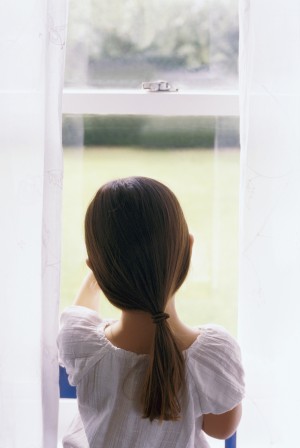 Today the U.S. Department for Housing and Urban Development (HUD) announced a proposed rule to make public housing across the country smoke-free. If this rule is promulgated, it would have a profound impact on the health and well-being of children living in public housing.
Today the U.S. Department for Housing and Urban Development (HUD) announced a proposed rule to make public housing across the country smoke-free. If this rule is promulgated, it would have a profound impact on the health and well-being of children living in public housing.
Exposure to secondhand smoke is one of the most significant contributors toward childhood asthma in the United States. Overall, two in five children are exposed to secondhand smoke and the U.S. Environmental Protection Agency estimates that secondhand smoke contributes to worsened asthma symptoms in 200,000 to one million children each year. Childhood asthma also disproportionately impacts children of color with 16 percent of African American and 16.5 percent of Puerto Rican children being diagnosed with asthma, compared to 8.2 percent of Asian and 7.9 percent of white children. Children with asthma miss more days of school and end up in the emergency room with regularity if their asthma is not treated appropriately.
The proposed HUD regulation has the potential to significantly improve the health of over 760,000 children who currently live in public housing and save over $152 million per year in health care, renovation and fire damage costs associated with smoking.
The proposed rule does not cover all government subsidized housing units, which would include Section 8 units. If the rule were to extend to those dwellings as well the impact would be much more far-reaching, with an estimated $497 million in cost savings, according to Centers for Disease Control and Prevention, and over three million children protected from secondhand smoke. The Childhood Asthma Leadership Coalition has urged HUD to adopt smokefree policies for all government subsidized housing and hopes that this rulemaking will give other stakeholders the opportunity to stress this important point.
The proposed rule also does not prohibit the use of Electronic Nicotine Delivery Systems (ENDS), which include electronic cigarettes (e-cigarettes). E-cigarettes contain nicotine and other dangerous toxins that can have a permanent effect on the developing brain of adolescents. The notice makes this observation and invites comments on this issue to perhaps include a prohibition on e-cigarettes in the final rule.
Finally, the proposed rule does not prohibit all public housing tenants from smoking. Smoking would be permitted outside of a 25-foot perimeter around the public housing unit. HUD is also proposing that 18 months be given to public housing authorities to implement the rule so they have time to include the policy into new leasing agreements and work with tenants on addressing any issues related to the rule.
The proposed rule are open for comment for 60 days and we encourage anyone who is interested in this issue to write comments in support of the general provisions of the rule and recommending that HUD include all government subsidized housing and ban the use of e-cigarettes in the final rule.
.@HUDgov proposes rules to make public housing smoke-free: http://bit.ly/1PEwbix v/ @First_Focus #asthma #InvestInKids
![]() Tweet this now.
Tweet this now.